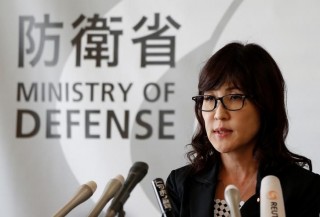Loading
Search
▼ Inada's Yasukuni Visit Draws Criticism From China, S Korea
- Category:Event
Japanese Defense Minister Tomomi Inada’s visit to Yasukuni Shrine in Tokyo on Thursday drew prompt criticism from Japan’s two closest neighbors, with South Korea condemning it as “deplorable” and summoning a Japanese diplomat to lodge its protest.
The South Korean Foreign Ministry called in Kohei Maruyama, a minister at the Japanese Embassy in Seoul, to protest. The ministry also said in a statement earlier that it was “deplorable that a responsible Japanese politician worships at Yasukuni Shrine, which beautifies past colonial invasions and invasive wars, and enshrines war criminals.”
Similarly, the country’s Defense Ministry expressed “serious concern and regret.”
Meanwhile in China, a tabloid affiliated with the People’s Daily, a mouthpiece of the ruling Communist Party of China, took a critical stance in a dispatch in its Chinese electronic edition.
The Global Times emphasized that the visit came immediately after Inada accompanied Prime Minister Shinzo Abe on a “reconciliation” trip
Tuesday to Hawaii’s Pearl Harbor.
The article also noted that it was her first visit as defense minister to the shrine, where 14 Class A war criminals including Gen. Hideki Tojo, a wartime prime minister, are honored along with Japan’s war dead.
Its headline said Inada paid homage to the “ghosts” at Yasukuni just after talking about “reconciliation,” in reference to the trip to Pearl Harbor, the site of the Japanese attack in 1941 that brought the United States into World War II.
The Chinese Foreign Ministry had yet to issue any statement as of noon Thursday.
The previous day, in response to a similar visit to Yasukuni by another Japanese Cabinet minister, ministry spokeswoman Hua Chunying said that China is “firmly against” any such visit and criticized the shrine for worshipping war criminals and whitewashing the war of aggression.
“We once again urge the Japanese side to look squarely at and deeply reflect upon the past history of aggression, take a responsible attitude to properly handle relevant issues, and make tangible moves to win the trust of its Asian neighbors and the world,” she told reporters after a press conference Wednesday.
China and South Korea, along with some of Japan’s other neighbors, view Yasukuni as a symbol of Japan’s militarism in the 20th century, saying that lawmakers who visit the shrine are glossing over wartime history.
© KYODO
- December 29, 2016
- Comment (0)
- Trackback(0)


